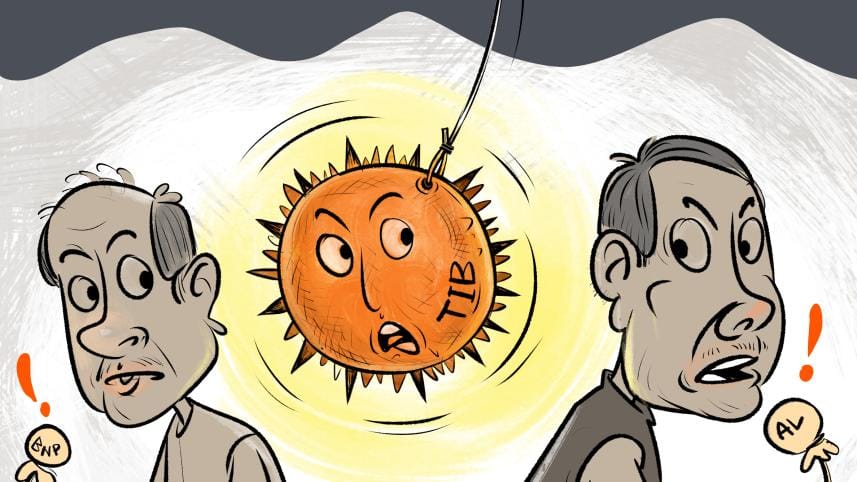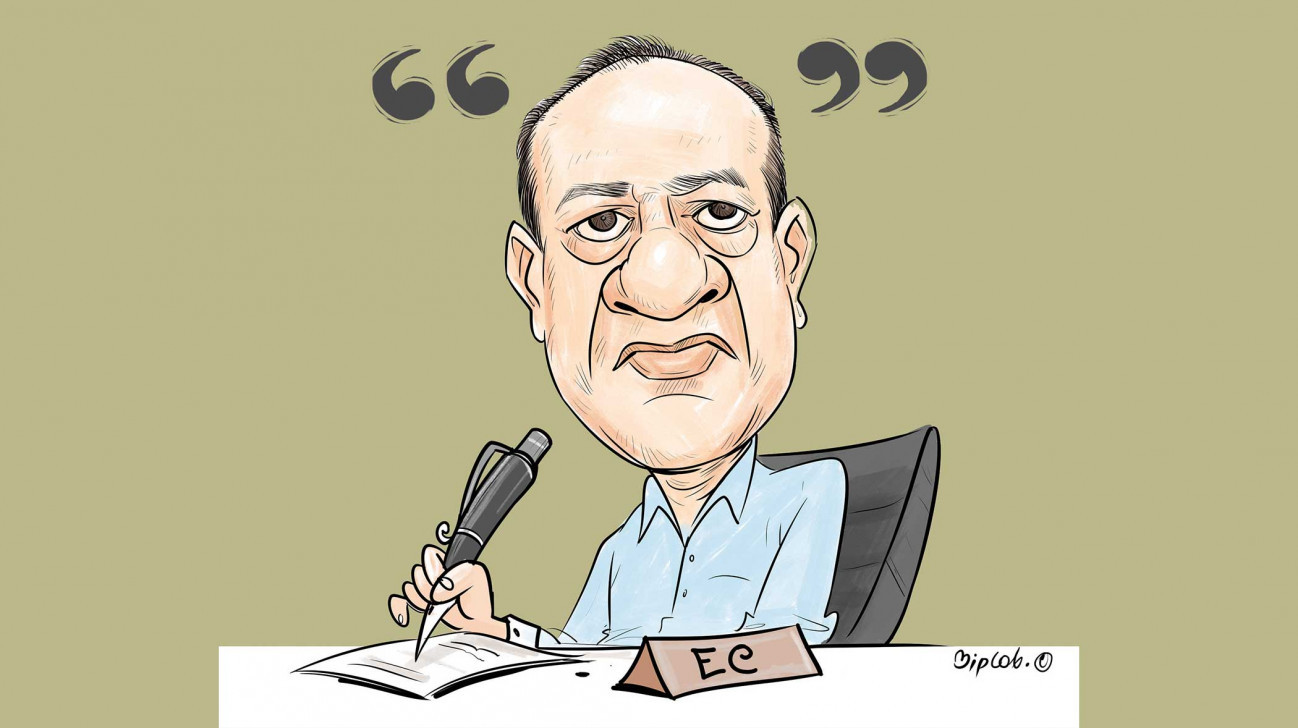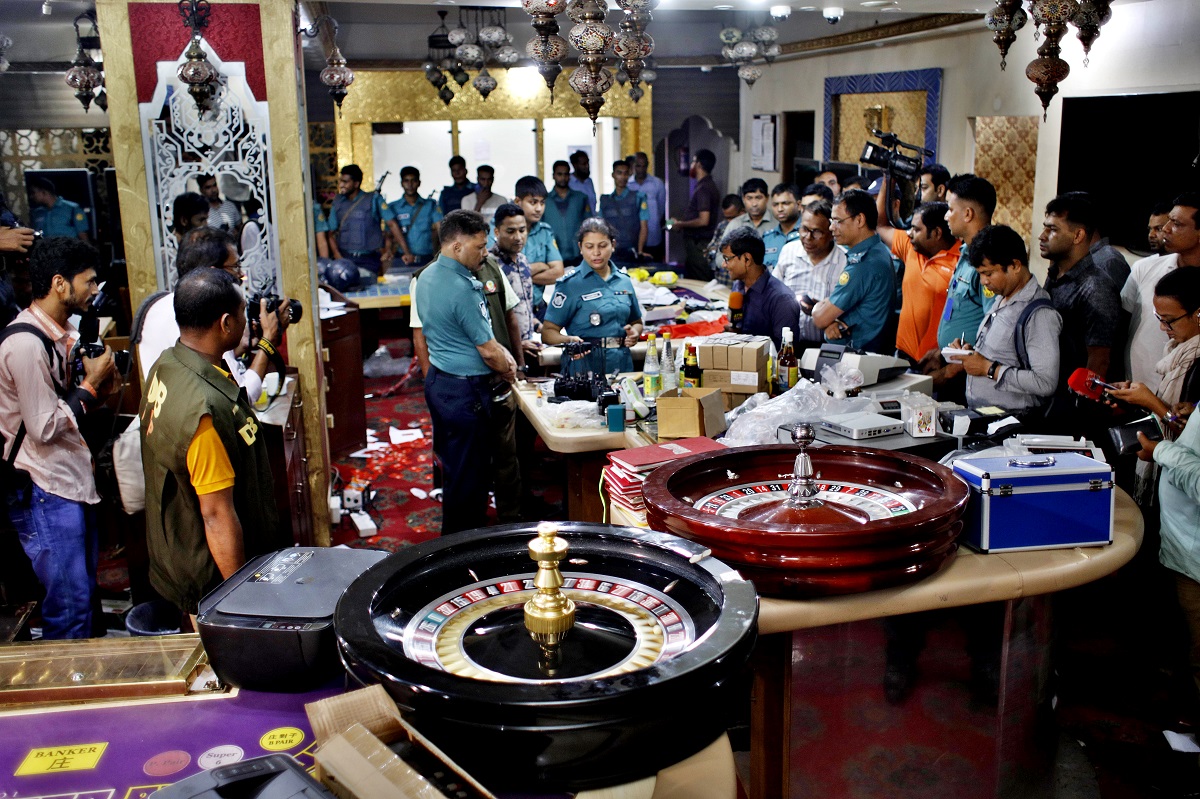TIB: The forever ‘villain’?

As expected, the Awami League government—three ministers, to be specific—reacted sharply after the publication of a research report titled "The 12th Parliament Election Process Tracking," which included a survey on 50 constituencies in the January 7 election by Transparency International Bangladesh (TIB). The research found the election to be one-sided—one that was staged to appear competitive. "It is an ominous sign regarding the future of democracy and democratic elections in Bangladesh," said TIB's executive director Iftekharuzzaman. The research, which was conducted in 50 out of 300 constituencies in eight divisions between June 2023 and January 2024, found multiple irregularities in all the constituencies surveyed on election day.
No sooner had the report hit the newsstands than AL General Secretary Obaidul Quader accused TIB of speaking in the language of BNP, and even went one step further by terming it to be BNP's agent—reminiscent of Mannan Bhuiyan, former secretary general of BNP, bringing up a similar accusation in 2006. Regarding the TIB report, Foreign Minister Hasan Mahmud said, "It seems that there is a similarity in terms of language between what BNP says and what TIB is saying." Meanwhile, the State Minister for Information and Broadcasting Mohammad Ali Arafat said, "TIB has done the research in 10 days of the national election and reached many conclusions. I don't know how it is possible to conduct the research within a short period." Of course, the report was not done "in 10 days" but over seven months, as mentioned above.
Anybody with rudimentary knowledge of Bangladesh's politics, at least of the last 33 years—since the fall of autocrat Ershad—knows that AL and BNP differ on practically everything under the Sun. I could throw a riddle at my readers and ask: "Can you name one thing or issue or an institution in the hatred of which both our leading parties are united?" The answer is, of course, TIB.
TIB, which is the Bangladesh chapter of Transparency International (TI), was founded as a trust in 1996 and registered as an NGO in 1998. TI launched its first global Corruption Perceptions Index (CPI) report in 2001, which coincided with the last year of Awami League's first term in office (during 1996-2001). The report identified Bangladesh as being at the top of the list of countries perceived as highly corrupt.
All hell broke loose immediately, to say the least.
Given its proclivity to smell a conspiracy in everything that does not sing its praise, AL reacted with unprecedented rage, saying that the index was nothing but a "conspiracy" to discredit the party before the election which was to be held some months later. The publicity apparatus of AL, which was considerable since it was the ruling party at that time as well, began a concerted tirade against this newly formed body. The disclaimers that the report was not of TIB—which is based in Bangladesh—but of TI—which is based in Berlin—and that the former had nothing to do with it fell on deaf ears.
BNP, on the contrary, could not hold back its joy and considered the 2001 CPI the most authentic vindication of all its anti-AL propaganda. Its praise for TIB knew no bounds.
However, when BNP came to power in 2002, its tone, as expected, reversed. It was now BNP's turn to be angry and attack TIB. While AL's praise continued unabated, BNP carried out a tirade against TIB for the four successive years that Bangladesh occupied the same slot, saying TIB was a pro-AL body and that its secret agenda was to discredit Khaleda Zia's government and bring AL back to power. Separately, TIB—through its own research—exposed BNP's failure to curb corruption and showed how this malaise had spread throughout the country. In 2006, BNP's anger reached such a pitch that it threatened to close down TIB's branches in 64 districts by lodging cases in all districts. One of TIB's reports exposed corruption in local government in particular, whose minister, Mannan Bhuiyan, made it his personal crusade to castigate TIB and used the whole government machinery to harass, discredit, and intimidate the organisation. BNP's local-level leaders and activists even ransacked at least two TIB offices in Lalmonirhat and Faridpur, and physically assaulted the young volunteers of TIB.
Throughout this period when BNP was in power, AL's praise for TIB fell like the monsoon rains and the party termed it to be as brave, courageous, and authentic an organisation as could be.
However, the tables turned once more with AL returning to power in 2008. In reaction to a TIB report exposing the highest rate of corruption in legal services through the National Household Survey, three defamation cases were lodged against TIB by pro-AL lawyers in different places (Cumilla, Khagrachari, and Chattogram), each containing exactly the same narrative of allegations.
Under both regimes, tirade against TIB featured even in parliamentary deliberations.
In a furious reaction against a TIB report titled "Parliament Watch," which had exposed the weaknesses of the functioning of the Jatiya Sangsad, the veteran politician and late chairman of the Parliamentary Standing Committee, Suranjit Sengupta, threatened the cancellation of TIB's registration. Based on his draft, the parliament followed up by introducing a provision in the Foreign Donations (Voluntary Activities) Regulation Act 2016 that presently regulates the work of NGOs. By this provision, criticism of the constitution and of all constitutional bodies was criminalised, creating an atmosphere of intimidation not only against TIB, but against NGOs in general and those working in governance and rights.
Ministers and senior officials under both regimes have consistently raised motivated, ridiculous, and unsubstantiated doubts about the funding source of TIB. This is despite the government being the first to know what the source of funds is, thanks to monitoring by the NGO Affairs Bureau. The BNP government had come up with a theory that TIB received funds from corruption-ridden Enron and WorldCom, while the AL government alleged TIB to have received funds from BHP, an Australian mining outfit. However, none of these organisations has ever had any interaction with TIB.
Under both regimes, TIB has been subjected to targeted harassment by relevant government entities like NGO Affairs Bureau, National Board of Revenue, and also surveillance by agencies.
The question is: after all these years and perpetual bashing of TIB, did the governments of the respective days benefit from their demonising of TIB? Wouldn't they have benefitted more if they'd really studied the TIB mandate, which was to strengthen the capacity of the state and its relevant institutions to fight corruption and improve governance? TIB conducts 10-12 research studies annually on public institutions to examine the extent of corruption in each and suggest relevant reforms. Its flagship National Household Survey, conducted every two years, reveals the extent of bribery in important sectors like health, education, local government, land, law enforcement, income tax, passport service, etc. This particular study contains a treasure of facts which, when delved into deeply, can provide endless ideas to the government on how to ameliorate public suffering. But instead, the reactions of our governments have been knee-jerk, devoid of facts, and threatening, always with an intention of shooting the messenger.
As the AL government begins its fourth consecutive term, we hope that it will have learned from its past mistake of automatically negating all critical reports and opinions. This time around, it will hopefully approach the critical voices, including that of the independent media, in a more mature and fact-based manner rather than treating critics as enemies.
Mahfuz Anam is editor and publisher of The Daily Star.
Views expressed in this article are the author's own.
Follow The Daily Star Opinion on Facebook for the latest opinions, commentaries and analyses by experts and professionals. To contribute your article or letter to The Daily Star Opinion, see our guidelines for submission.




 For all latest news, follow The Daily Star's Google News channel.
For all latest news, follow The Daily Star's Google News channel. 


Comments